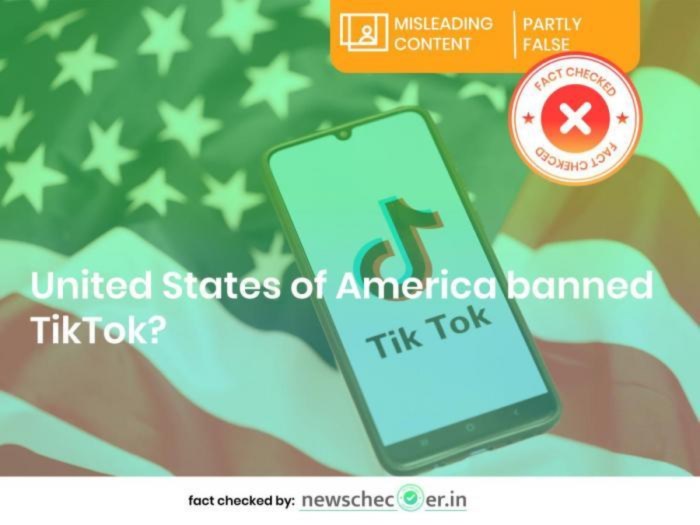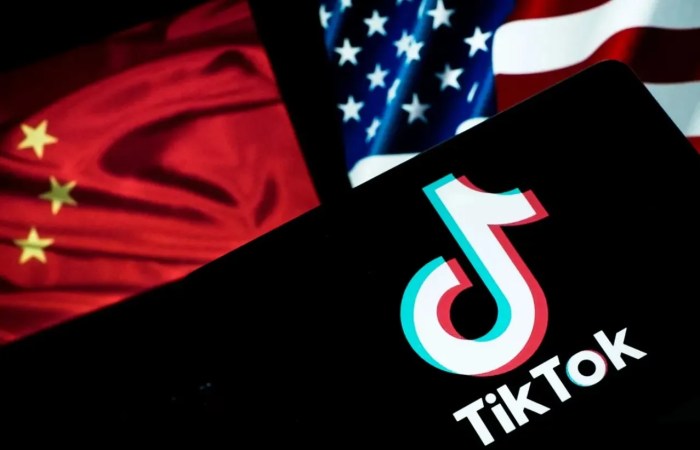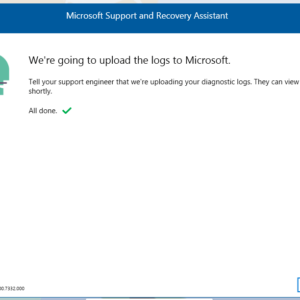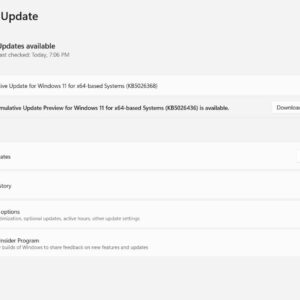Apple TikTok Ban US: The whispers have turned to shouts. For months, the potential ban of TikTok in the US has loomed large, casting a long shadow over the app’s millions of users and raising serious questions about national security, data privacy, and the power of Big Tech. This isn’t just a spat between a social media giant and the US government; Apple, the gatekeeper of the App Store, finds itself squarely in the crosshairs, facing a dilemma with potentially massive consequences.
This complex situation involves intricate geopolitical maneuvering, thorny legal issues, and a whole lot of unanswered questions. We’ll unpack the history of the Apple-TikTok relationship, the reasons behind the potential ban, and what this all means for you, the average TikTok user. Buckle up, because this ride is far from over.
The Apple-TikTok Relationship Before the Ban
Before the US government’s scrutiny and subsequent calls for bans, TikTok and Apple enjoyed a seemingly symbiotic relationship, typical of the app developer-app store platform dynamic. Apple’s App Store provided TikTok with a crucial distribution channel to reach millions of iOS users, while TikTok, in turn, contributed significantly to Apple’s revenue streams. This seemingly harmonious partnership, however, was underpinned by a complex set of agreements and underlying tensions.
Apple’s App Store operates under a set of strict guidelines regarding content moderation and app removal. These policies, designed to maintain a safe and user-friendly environment, dictate the acceptable types of content within apps and Artikel the process for app removal in cases of violations. While the exact details of Apple’s review process aren’t publicly available, it’s understood that apps violating guidelines, whether involving illegal activities, harmful content, or repeated user complaints, face scrutiny and potential removal. This system of checks and balances, while intended to protect users, also created a potential point of conflict with TikTok, a platform known for its rapidly evolving content landscape.
Apple’s App Store Revenue from TikTok
TikTok’s primary revenue stream within the Apple ecosystem came from in-app purchases and advertising. A significant portion of TikTok’s revenue was generated through the Apple App Store, with Apple taking a 30% commission on all in-app purchases. This revenue sharing model, standard practice for Apple’s App Store, meant that Apple profited handsomely from TikTok’s immense popularity and user base on iOS devices. While the exact figures aren’t publicly disclosed, estimates suggest this revenue stream was substantial, contributing significantly to Apple’s overall app store earnings. This financial dependence on Apple’s platform was a key factor in the relationship, creating both opportunities and potential vulnerabilities for TikTok.
Timeline of Significant Events
Prior to the potential ban discussions, several key events shaped the Apple-TikTok relationship. For example, the growing concerns regarding TikTok’s data security and privacy practices, especially concerning user data collection and potential access by the Chinese government (ByteDance, TikTok’s parent company, is based in China), began to surface. These concerns, amplified by geopolitical tensions, gradually escalated the pressure on both Apple and TikTok. Further, Apple’s own internal reviews of TikTok’s app, while not publicly documented in detail, likely played a role in the growing tension. Although no specific dates for internal reviews are available, the increasing public discourse surrounding data privacy and national security certainly influenced the atmosphere surrounding TikTok’s presence on the App Store. These growing concerns, coupled with increasing governmental scrutiny, set the stage for the eventual discussions about potential bans.
Reasons Cited for a Potential US Ban: Apple Tiktok Ban Us
The potential US ban on TikTok stems from deep-seated concerns about national security and data privacy, primarily fueled by the app’s Chinese ownership and data handling practices. These concerns aren’t merely hypothetical; they’re rooted in real-world anxieties about foreign influence and the potential for sensitive user data to be accessed by the Chinese government. The debate surrounding a ban is complex, balancing the economic and social implications of restricting a popular app against the perceived risks to national security.
The primary concerns voiced by US government officials revolve around TikTok’s potential to be used for espionage, propaganda, and data harvesting. These fears are amplified by TikTok’s parent company, ByteDance, being based in China, a country with a history of state-sponsored cyberattacks and strict data regulations that prioritize the government’s access to information. The argument is that the Chinese government could potentially compel ByteDance to share user data, potentially including sensitive information about US citizens, infrastructure, or national defense.
National Security Implications of TikTok’s Data Handling
TikTok’s data collection practices have been a focal point of the debate. The app collects a vast amount of user data, including location information, browsing history, contacts, and even biometric data. The concern isn’t just about the volume of data collected but also the potential for this data to be used for malicious purposes. For instance, location data could be used to track military bases or critical infrastructure, while contact lists could be exploited to identify potential targets for influence operations. Furthermore, the lack of transparency regarding TikTok’s data security measures and the potential for backdoors to exist in the app exacerbate these concerns. The argument centers on the potential for this data to be misused for espionage or influence operations, undermining US national security.
Data Privacy: Arguments For and Against a Ban
The debate surrounding a TikTok ban heavily features the tension between data privacy and national security. Proponents of a ban argue that the risks to national security outweigh the convenience and entertainment value of the app, emphasizing the potential for data breaches and misuse of sensitive information. They point to China’s national security laws, which could compel ByteDance to share data with the government, as a major security risk. Opponents of a ban counter that a blanket ban is an overreach, arguing that the same data privacy concerns apply to numerous other apps, many of which are owned by US companies. They argue that focusing on stricter data regulations and enhanced security measures for all apps, rather than a targeted ban, would be a more effective approach. They also highlight the potential economic consequences of a ban, affecting millions of users and creators.
The Role of TikTok’s Chinese Ownership
The fact that TikTok is owned by a Chinese company is central to the concerns surrounding its potential use for espionage or data harvesting. China’s authoritarian government and its record of using technology for surveillance and influence operations create a significant distrust factor. The argument is that this ownership structure creates an inherent conflict of interest, potentially allowing the Chinese government to influence the app’s operations or access its data. While TikTok has repeatedly asserted its independence and commitment to user privacy, these assurances are often met with skepticism given the broader geopolitical context and the potential for coercion from the Chinese government. The lack of complete transparency and the nature of China’s legal system regarding data access significantly fuels these concerns.
Apple’s Role and Responsibilities

Source: innovation-village.com
Apple, as a dominant player in the tech world and gatekeeper to its App Store, carries significant legal and ethical responsibilities regarding the apps it hosts. This includes navigating complex geopolitical landscapes and balancing its own commercial interests with potential government mandates. Its actions regarding TikTok, a massively popular app, exemplify the intricate web of obligations it faces.
Apple’s legal obligations stem primarily from its role as an app distributor. It’s not directly responsible for the content within apps, but it has a duty to comply with applicable laws and regulations, including those related to national security, data privacy, and censorship. Ethically, Apple faces pressure to maintain a fair and open App Store while upholding its commitment to user privacy and security. A decision to ban TikTok would necessitate a thorough legal review and careful consideration of its ethical implications.
Apple’s Public Statements and Actions Regarding TikTok
Apple hasn’t issued a blanket public statement explicitly supporting or opposing a US TikTok ban. However, its actions reflect a cautious approach. Apple has consistently adhered to legal frameworks and government requests regarding app store content in various jurisdictions. While not publicly endorsing a ban, Apple’s silence in the face of potential legislative action suggests a willingness to comply should a government mandate arise. This stance is likely informed by a desire to avoid legal challenges and maintain positive relations with governments worldwide. Their actions have focused more on ensuring compliance with existing data privacy regulations, such as those enforced under GDPR and CCPA, rather than direct commentary on a potential ban.
Apple’s Potential Financial Impact from a TikTok Ban
A US TikTok ban would have a potentially significant financial impact on Apple. TikTok boasts millions of US users, generating substantial revenue through in-app purchases and advertising. Removing TikTok from the App Store would mean a loss of this revenue stream for Apple. This loss could be substantial, potentially impacting Apple’s overall financial performance, particularly if similar actions are taken in other major markets. The magnitude of the financial impact would depend on the scope of the ban (whether it’s a complete US ban or a more targeted one), the effectiveness of alternative platforms, and the ability of TikTok to adapt to the changing landscape. For example, the removal of WeChat from the App Store in certain regions provided a precedent for the potential revenue loss. While Apple’s overall financial health is robust, the loss of TikTok’s revenue would certainly be noticeable.
Hypothetical Scenario: Apple’s Response to a Government Mandate
Imagine a scenario where the US government issues a formal mandate requiring Apple to remove TikTok from the US App Store. Apple would likely initiate a comprehensive legal review to assess the legality and enforceability of the mandate. Simultaneously, it would engage in internal discussions to weigh the legal, financial, and reputational risks associated with compliance versus defiance. Publicly, Apple might issue a statement acknowledging the government’s mandate, emphasizing its commitment to complying with the law while expressing concerns about the impact on users and its business. Internally, Apple would likely explore all legal avenues to mitigate potential negative impacts, including potential legal challenges or negotiations with the government to find a compromise. The response would likely prioritize a measured and legally sound approach, minimizing disruption to its users while complying with the government’s demands. This approach would be consistent with Apple’s history of carefully navigating regulatory landscapes.
Impact on Users and the App Ecosystem

Source: newschecker.in
A hypothetical US ban on TikTok would send seismic waves through the American digital landscape, impacting millions of users, creators, and the broader app ecosystem in profound ways. The ripple effects would extend far beyond the immediate loss of access to the platform, affecting everything from user habits and creator livelihoods to the competitive dynamics of the mobile app market. Understanding these potential consequences is crucial for assessing the true cost of such a ban.
The potential ramifications are multifaceted and interconnected. The loss of a popular social media platform would be felt acutely by its users, while creators would face a direct threat to their income streams and professional opportunities. Furthermore, the ban could significantly reshape the competitive landscape of the mobile app market, potentially benefiting some companies while harming others. Finally, the legal challenges and precedents set by such a ban would have long-term implications for digital platforms and government regulation.
User Impact
A TikTok ban would deprive millions of American users of a platform for entertainment, social connection, and information consumption. Many rely on TikTok for news updates, viral trends, and communication with friends and family. The sudden absence of this platform would leave a void, potentially leading to frustration, a search for alternative platforms (which may not offer the same functionality or community), and a disruption to their daily routines. The impact would be particularly strong among younger demographics who heavily utilize the app. Consider the reliance on TikTok for quick, easily digestible information – its absence would necessitate a shift in information consumption habits.
Creator Impact
For countless creators, TikTok is not just a hobby; it’s their primary source of income. Many rely on brand partnerships, affiliate marketing, and virtual gifting to support themselves. A ban would abruptly cut off these revenue streams, leaving them without a primary platform for their creative work and livelihood. The transition to other platforms would be challenging, requiring significant effort to rebuild their audience and establish new revenue streams. Imagine the thousands of small businesses that rely on TikTok for marketing and sales; their potential loss of revenue could be devastating.
Economic Impact
The economic impact of a TikTok ban would be significant, extending beyond individual creators. The app supports a vast ecosystem of businesses, including advertising agencies, marketing firms, and analytics companies. The loss of TikTok’s advertising revenue and the potential decline in related industries would create economic ripples. Furthermore, the ban could negatively impact the value of TikTok’s parent company, ByteDance, potentially impacting investor confidence and market stability. The potential for legal challenges and the costs associated with them further contribute to the economic uncertainty.
Legal Impact
A US ban on TikTok would raise significant legal questions surrounding free speech, government overreach, and the regulation of foreign-owned technology companies. Legal challenges from TikTok, users, and creators are almost certain. The precedent set by such a ban could influence future regulations of other social media platforms and tech companies, potentially shaping the digital landscape for years to come. The debate over national security concerns versus individual rights would be at the forefront of any legal battles, creating a complex and uncertain legal environment.
| User Impact | Creator Impact | Economic Impact | Legal Impact |
|---|---|---|---|
| Loss of entertainment, social connection, information source; disruption to daily routines | Loss of income; difficulty transitioning to other platforms; potential career disruption | Loss of advertising revenue; negative impact on related industries; decline in ByteDance’s value; legal costs | Legal challenges regarding free speech, government overreach; potential for setting precedents for future regulations |
International Implications and Precedents

Source: rocketcdn.me
The potential US ban on TikTok, driven by national security concerns, isn’t an isolated incident. Similar actions and debates regarding app restrictions and data sovereignty are playing out globally, creating a complex web of international implications and setting precedents for future digital conflicts. Understanding these parallels and potential repercussions is crucial to grasping the full scope of the TikTok situation.
The US’s approach echoes actions taken by other nations grappling with concerns about foreign influence and data security. These actions often involve varying degrees of restriction, from outright bans to more nuanced regulatory measures aimed at controlling data flow and access. The international landscape is a patchwork of different legal frameworks and enforcement mechanisms, making a clear comparison challenging but revealing.
App Bans and Restrictions in Other Countries
Several countries have implemented app bans or restrictions based on national security or similar concerns. India, for instance, banned numerous Chinese apps, including TikTok, in 2020, citing security risks and data privacy violations. This action significantly impacted the app’s global user base and revenue streams, demonstrating the potential economic consequences of such bans. Similarly, certain countries in Africa have experienced restrictions on social media platforms during periods of political instability, highlighting the use of such bans as tools for social control. These examples underscore the fact that the US isn’t alone in navigating the complexities of balancing national security with digital freedoms.
Examples of Apps Facing Similar Scrutiny, Apple tiktok ban us
Beyond TikTok, other apps have faced similar scrutiny regarding national security. WeChat, another Chinese-owned app, has been subject to restrictions and concerns in several Western countries due to its vast data collection capabilities and potential for government access. The use of these apps by government officials has also been a point of contention, with concerns about potential espionage or data leaks. These cases highlight the growing trend of governments scrutinizing apps perceived as posing risks to national security, regardless of their popularity or functionality.
Potential for International Legal Challenges and Retaliatory Actions
A US ban on TikTok could trigger international legal challenges and potential retaliatory actions. ByteDance, TikTok’s parent company, might challenge the ban in US courts or pursue international arbitration, arguing against the fairness and legality of the restrictions. Furthermore, China could retaliate by imposing restrictions on US tech companies operating within its borders, creating a tit-for-tat scenario with significant economic implications. This potential for reciprocal actions adds a layer of complexity to the situation, highlighting the interconnected nature of the global tech landscape.
Implications for Global Data Privacy Regulations and Internet Freedom
The potential ban raises significant concerns about global data privacy regulations and internet freedom. A US ban could set a precedent for other countries to implement similar restrictions on foreign-owned apps, potentially fragmenting the internet and hindering cross-border data flow. This fragmentation could lead to a more protectionist approach to digital technologies, potentially stifling innovation and competition. Furthermore, it raises questions about the balance between national security concerns and the right to access information and communicate freely online. The ongoing debate reflects a broader global conversation on data sovereignty, cybersecurity, and the future of the internet.
Alternative Solutions and Mitigation Strategies
A complete ban on TikTok in the US feels like a sledgehammer to crack a nut. While concerns about data security and potential influence operations are legitimate, a blanket ban disrupts millions of users and overlooks the possibility of more nuanced solutions. Exploring alternative strategies that address these concerns without sacrificing user access is crucial. This section will delve into potential avenues for mitigating the risks associated with TikTok while preserving its functionality within the US.
The core issue revolves around the perceived vulnerability of US user data held by a Chinese company. Finding a balance between national security and the rights of users requires creative and comprehensive approaches. The following explores various strategies that could be implemented to alleviate these concerns.
Independent Audits and Enhanced Transparency
Regular, independent audits of TikTok’s algorithms and data handling practices could provide a significant level of assurance. These audits, conducted by reputable third-party cybersecurity firms, would scrutinize data collection methods, storage locations, and access controls. Transparency is key; TikTok should proactively publish the results of these audits, detailing their findings and any remedial actions taken. This level of transparency would build trust and allow for independent verification of TikTok’s claims regarding data security. This model is similar to how financial institutions undergo regular audits to maintain public confidence.
Data Localization and Storage
Storing US user data exclusively within the United States, in servers managed by US-based companies, would significantly reduce the risk of data breaches or unauthorized access by foreign entities. This approach necessitates substantial investment from TikTok but aligns directly with the concerns driving calls for a ban. Companies like Oracle have experience in managing sensitive data and could potentially serve as a trusted partner for TikTok in this endeavor. This approach has parallels to how other companies handle sensitive customer data in countries with stringent data privacy regulations.
Development of a US-Based TikTok Version
Creating a completely separate version of TikTok specifically for US users, with its own independent infrastructure and data governance, presents a radical but potentially effective solution. This would entail substantial investment in infrastructure, personnel, and software development. However, it could provide a complete firewall against concerns about data access from ByteDance, TikTok’s parent company. This approach is similar to how some companies create regional versions of their products to comply with local laws and regulations.
Mitigation Strategies: A Bulleted List
The following steps could significantly mitigate the risks associated with TikTok’s operation in the US:
- Implement robust encryption protocols for all user data, both in transit and at rest.
- Establish a clear and transparent data privacy policy, readily accessible to all users.
- Regularly conduct penetration testing and vulnerability assessments to identify and address security weaknesses.
- Provide users with greater control over their data, including the ability to easily download and delete their information.
- Establish a dedicated US-based security team responsible for overseeing data security and compliance.
- Collaborate with US government agencies to address security concerns and build trust.
End of Discussion
The Apple TikTok Ban US saga is a high-stakes game of cat and mouse, with national security concerns pitted against the economic realities of a hugely popular app. Whether a ban happens or some alternative solution emerges, the fallout will be felt across the tech world, impacting not only TikTok users but also the very fabric of the digital landscape. The future of app store regulations and international data privacy are now more than ever at the forefront of this discussion, and this is only the beginning of a longer conversation.

